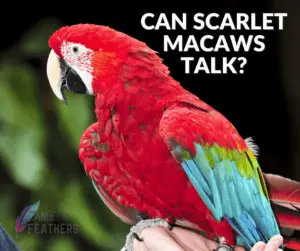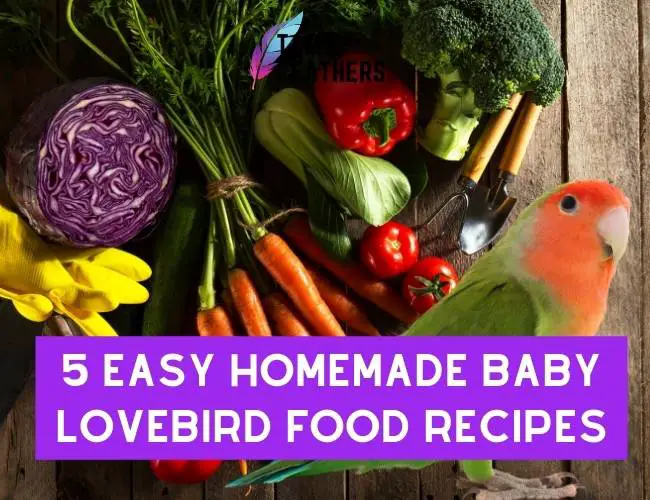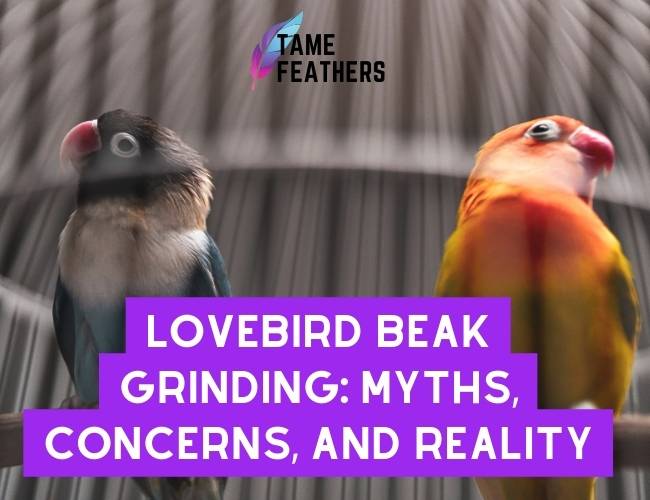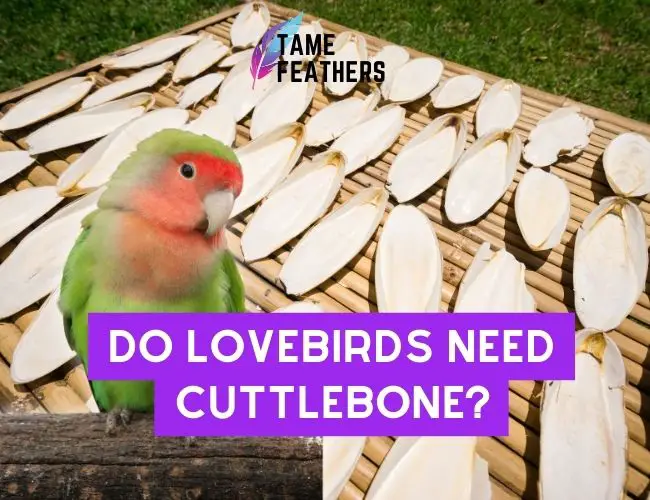Are you considering acquiring a young lovebird?
Although raising a feathery buddy is extremely fulfilling, there is a lot of responsibility involved.
This article will provide you all the knowledge and advice you need to ensure that your young lovebird grows up healthy and content.
We’ll cover everything, including what kind of food to feed them and how frequently! So let’s get started and learn everything there is to know about feeding your new addition if you’re up for the challenge.
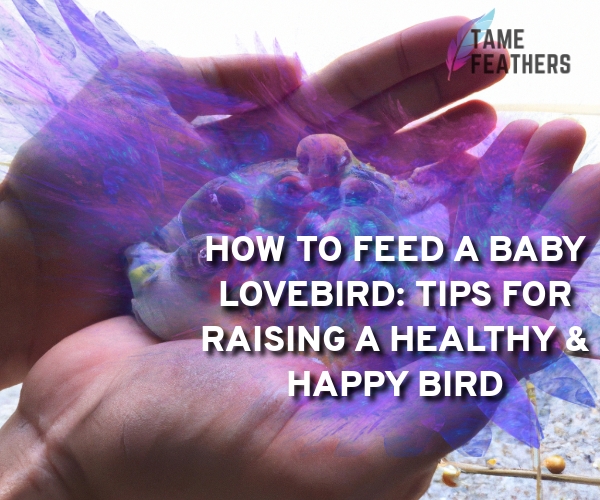
What Type of Food Should You Feed A Baby Lovebird?
One of the most important steps when it comes to caring for your baby lovebird is ensuring that it gets proper nutrition.
The best way to do this is by providing a high-quality commercial diet specifically designed for baby birds.
It should contain all the necessary vitamins and minerals, as well as protein, fat, carbohydrates, and other essential nutrients.
Look for a mix that’s made from fresh ingredients such as fruits and vegetables.
If you can’t find one in stores near you, there are many online retailers that offer bird food specifically formulated for young birds.
Fresh Fruits & Veggies
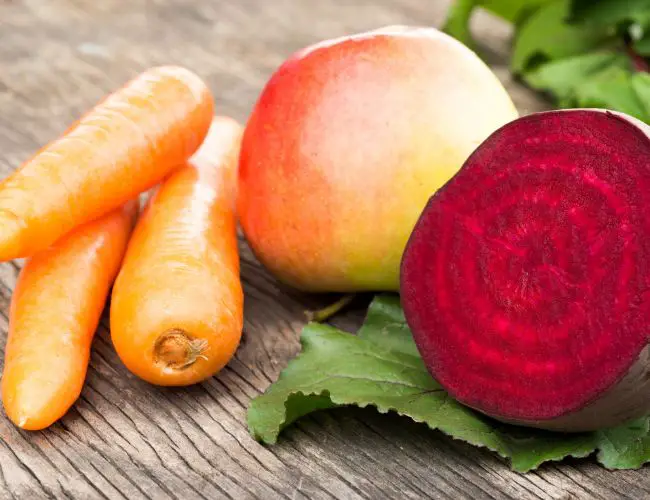
In addition to offering your baby lovebirds a quality commercial diet formulated just for them, you should also supplement their diets with fresh fruits and veggies on occasion.
Offer up small pieces of organic produce like apples or carrots—just make sure they don’t have any seeds or pits.
These natural treats are not only nutritious but fun too; some species even enjoy playing with their food first before consuming it.
Be sure to remove uneaten portions after about an hour so they don’t spoil (and attract pests).
Seeds & Nuts

Lovebirds enjoy eating healthy seeds and nuts from time to time. Just remember never to give them raw peanuts since these can be toxic if ingested in large quantities.
Instead, opt for hulled sunflower seed mixes or nutriberries which provide balanced nutrition without the risk of choking hazards associated with traditional nuts and seeds.
If you decide to feed your feathered friend some type of seed mix, be sure it does not contain artificial colors or flavors which can be harmful over time.
Additionally avoid giving them any foods containing sodium content higher than 300mg per serving size since this could cause serious health problems down the road.
How Much Should You Feed Your Baby Lovebird?
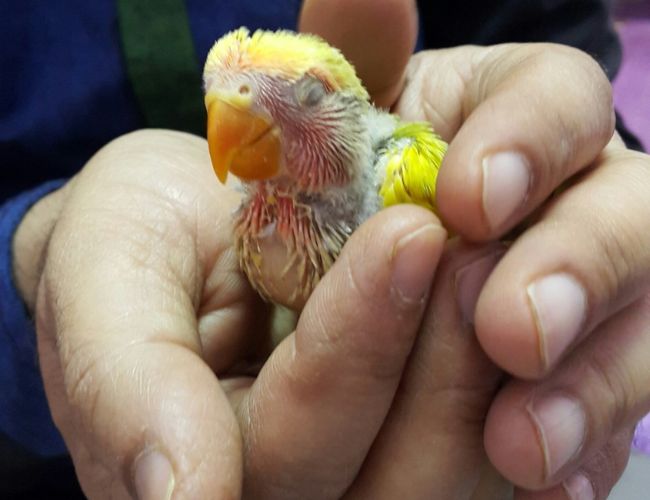
When feeding a baby lovebird it’s important not only what kind of food you offer but how much. Babies need more frequent meals than adults due to their rapid growth rate during this stage of life so plan accordingly.
Generally speaking they will need around three meals throughout each day consisting mostly of soft pellets mixed in with bits of freshly cut fruit/vegetables plus occasional treats like cooked beans or boiled eggs (make sure everything has been cooled off prior!).
As mentioned above also ensure there’s plenty available at all times as these little ones get hungry quickly. Having multiple feeders filled throughout different areas within their cage will help keep mealtime stress-free.
How To Monitor Your Baby Lovebird’s Diet
Keeping track of what your feathered family member eats is an important part of successful pet parenting – especially when dealing with babies who require extra attention regarding nutritional needs.
Begin by closely monitoring how much they consume at each meal then adjust amounts according as needed based upon its activity level; if active/lively then increase while conversely decrease amount given if less active/lethargic due possibly being overfed already.
What Types Of Treats Can I Give My Baby Love Bird?
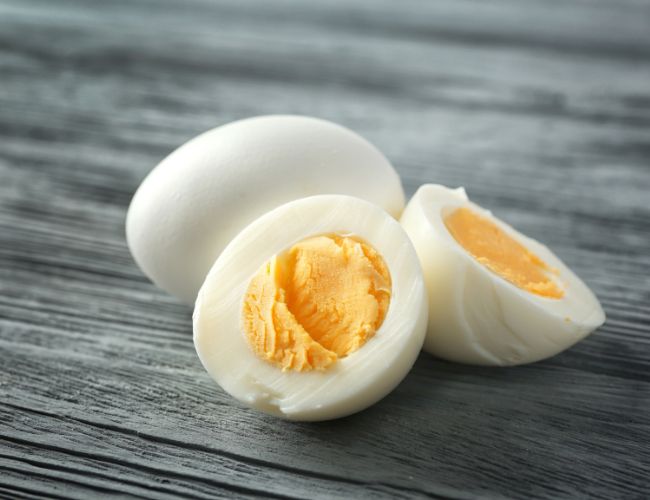
In moderation, small amounts treats are fine every now again provided they’re healthy options such as unsalted nuts (only if pre-shelled!), cooked legumes like chickpeas or lentils plus mashed hardboiled egg whites.
Avoid feeding anything sugary processed snacks though because these lack sufficient nutrition value typically found in other forms mentioned earlier.
Have You Tried This Gourmet Parrot Food?
We get so much good feedback on these Bistro Parrot Food packs! Our readers feathered friends are absolutely loving it! The best part is, it is suitable for all birds and parrot-types. Parakeets, Cockatiels, African Greys, etc. Check it out…
[amazon box=”B086KLFSZQ”]
We Thought You Might Want To Know This About Lovebirds… 😊
how to teach lovebirds to talk
can lovebirds and parakeets live together
how to take care of baby lovebirds

